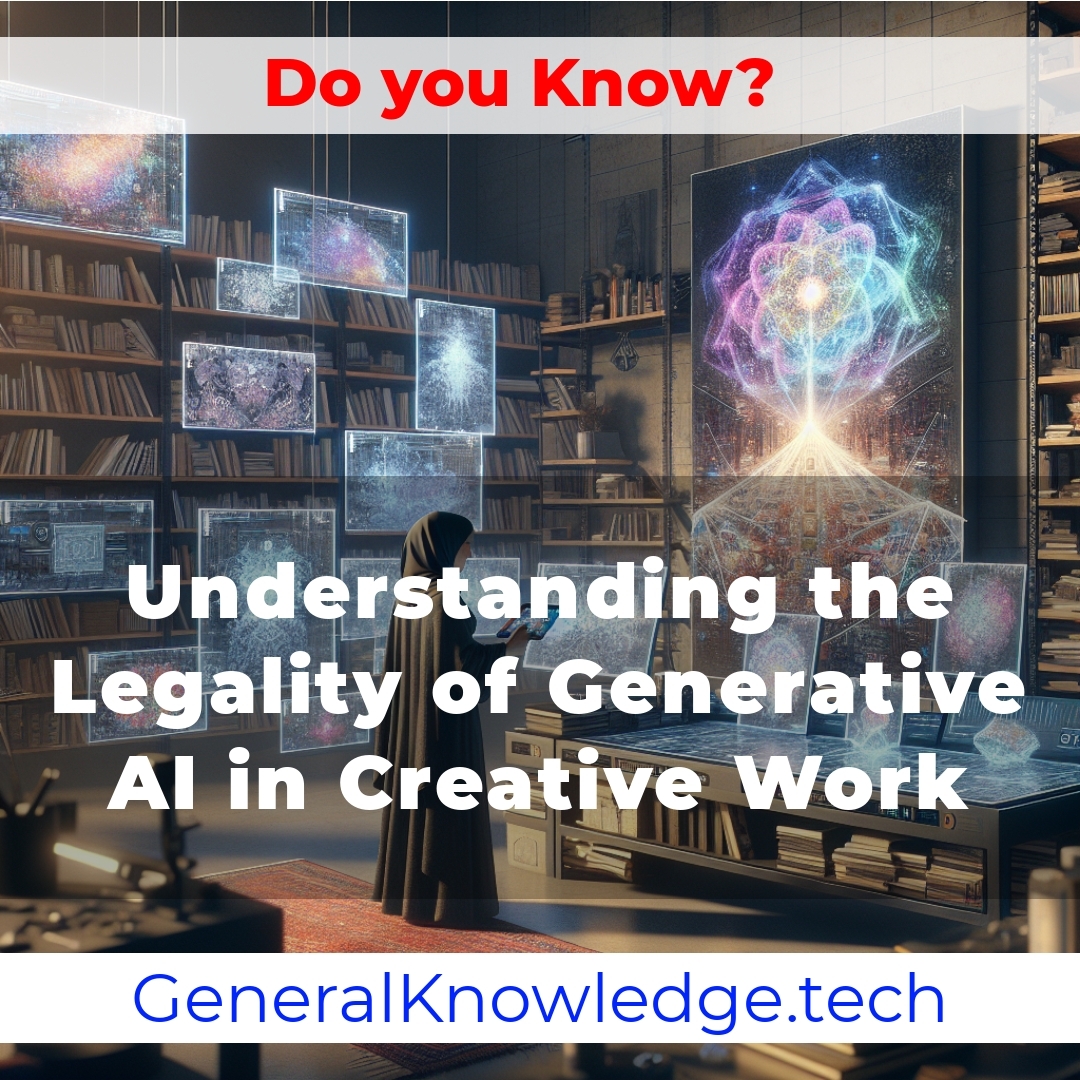Generative AI is revolutionizing the digital landscape by producing unique content and enhancing various sectors, particularly in creative industries. However, as these technologies advance, important questions arise about their legality, especially concerning copyright and generative AI. In this article, we will explore the legal implications of AI, focusing on the intersection of generative AI legality and copyright laws.

## Understanding AI Ethics and Its Legal Framework
AI ethics encompasses the moral principles guiding the development and utilization of artificial intelligence technologies. As generative AI becomes increasingly prevalent in creative processes, it is essential to examine how these ethical standards interact with copyright and generative AI legality. This relationship poses complex challenges: When an AI creates artwork, who owns that piece—the AI developer, the user who prompted the creation, or the dataset used for training? Addressing these questions is critical for understanding the legal implications of AI in the creative sector.
## Intellectual Property and Copyright Issues in Generative AI
In today’s digital age, the evolution of copyright laws has led to confusion regarding their application to AI-generated content. Traditionally, copyright law protects original works of authorship, but generative AI complicates this landscape. Since AI can mimic existing works and produce new content, concerns about copyright and generative AI are mounting.
Many worry that AI-generated content may merely replicate human creativity rather than produce something genuinely original. This has sparked an ongoing debate about the validity of copyright claims surrounding AI-generated works. If an algorithm creates a poem or artwork, who rightfully claims ownership? Understanding these copyright issues is essential to navigating the legal implications of generative AI in creative work.
## The Intersection of Creativity and Generative AI
Exploring the relationship between creativity and AI raises a crucial question: How original is the content produced by generative AI? While this technology learns from existing data to generate new outputs, the results can often seem remarkably unique. However, it is vital to analyze the extent to which this output represents true originality.
Is the use of generative AI tantamount to theft of intellectual property? This question divides opinions; some argue that AI merely reflects the world it learns from, while others believe its replication of existing patterns infringes on creative ownership. This ongoing dialogue is essential as we consider the future relationship between human creators and generative AI technologies.
## Legal Implications of Generative AI Usage
The rise of generative AI is reshaping the landscape of copyright laws. As AI technology advances, existing legal frameworks often struggle to keep pace with innovative applications of AI. Many individuals are asking, “What are the legal implications of AI?” The answer remains uncertain as courts and lawmakers tackle the unique challenges presented by AI-generated content.
Moreover, it’s crucial to acknowledge the ethical dimensions of using generative AI. Users and creators alike must consider their responsibilities when generating content. How can we ensure that AI-generated works respect the principles of originality and intellectual property? Understanding the legal implications of AI involves maintaining awareness of these ethical boundaries, which is vital for responsible implementation across various creative industries.
## Conclusion
In conclusion, the conversation surrounding the legality of generative AI in creative work has never been more relevant. As we debate whether the use of generative AI constitutes theft, it is clear that the intersections of AI ethics, copyright, and generative AI legality present a complex web of questions.
The challenge lies in navigating these intricate issues to protect and inform all stakeholders—creators, developers, and users—as they engage with this transformative technology. As generative AI evolves, we must commit to ongoing discussions and updates in AI legislation to better define creative ownership in the rapidly changing landscape of generative AI.
### Frequently Asked Questions
**What is AI ethics?**
AI ethics refers to the moral principles guiding the development and use of artificial intelligence technologies. It examines AI’s impact on society, including fairness, accountability, and respect for individual rights.
**Who owns AI-generated content?**
Ownership of AI-generated content is complex and depends on factors like who developed the AI, who prompted its creation, and the datasets used for training. These questions are still under legal debate.
**How does copyright law apply to AI-generated works?**
Copyright laws are evolving, leading to confusion about their application to AI-generated content. Typically, copyright protects original works, but the introduction of generative AI complicates the interpretation of originality.
**Is AI-generated content considered theft of intellectual property?**
This is a polarizing issue. Some argue that AI merely reflects existing work, while others believe it infringes on the creative ownership of original content. Ongoing discussions are crucial as we navigate AI’s role in creativity.
**What are the legal implications of using generative AI?**
As generative AI advances, it challenges existing copyright laws, which often struggle to keep up. Courts and lawmakers are actively addressing the unique challenges posed by AI-generated content.
**How can we ensure ethical use of generative AI?**
Users and creators need to assess their responsibilities in generating content, ensuring respect for originality and intellectual property rights to guide the ethical use of AI technologies.
**Why is it important to discuss AI ethics and copyright?**
Understanding the ethical and legal implications of generative AI is vital for creators, developers, and users. Ongoing discussions help clarify the boundaries of creative ownership, ensuring all parties remain informed.






